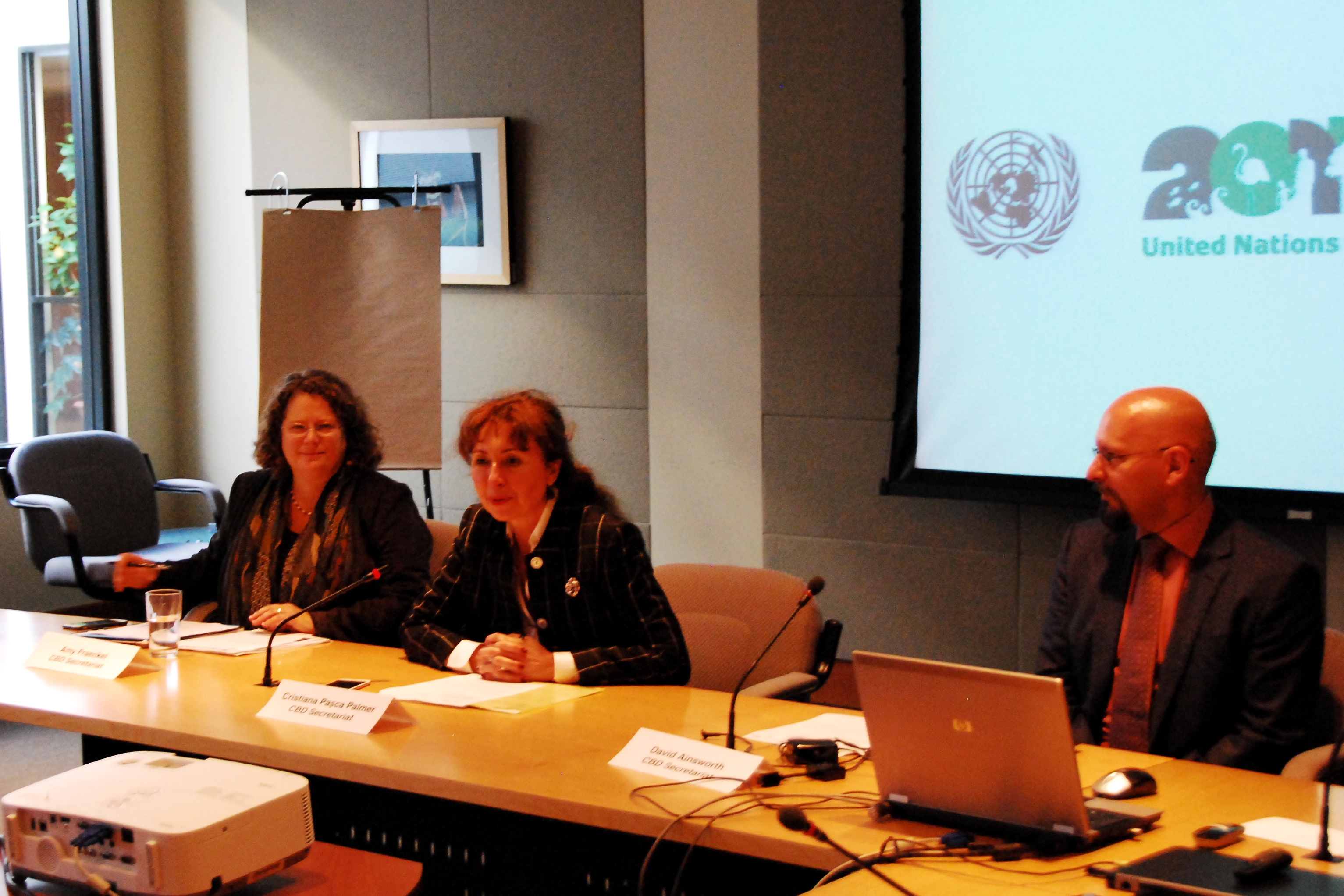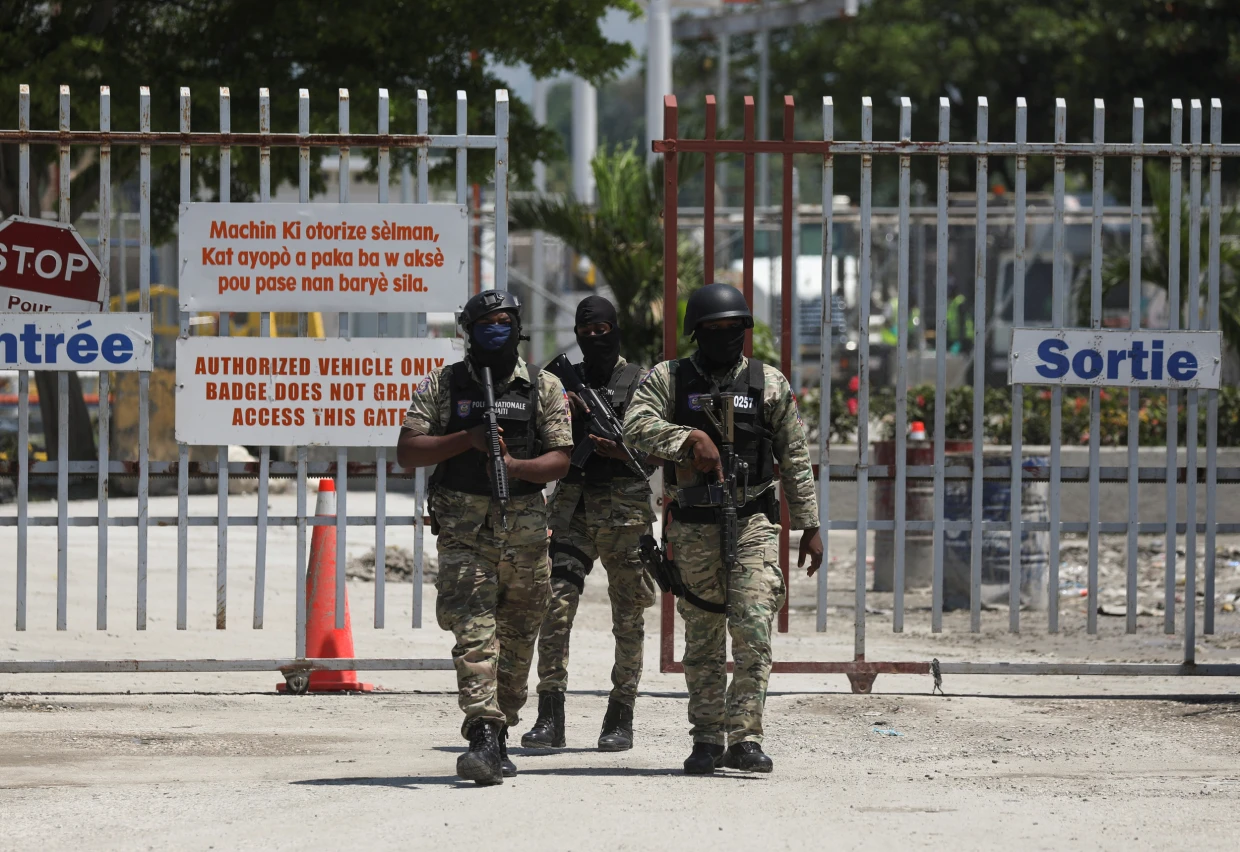By Desmond Brown – Executive Editor
Executive Secretary of the Convention on Biological Diversity (CBD) Dr Cristiana Paşca Palmer has said one of her top priorities is to raise the profile and political visibility of the body.
“We all need to do a better job of communicating the critical importance of biodiversity and healthy ecosystems for human well-being, jobs, food security, and so on,” Palmer said here Tuesday at the start of a meeting of meeting of the Informal Advisory Committee for Communication Education and Public Awareness.
The former minister of the environment for Romania who also serves as the UN Assistant Secretary-General, said she is aware of the important role that communication plays in building policy support and in realising implementation.
She said this is true for all policy – economic, immigration, culture and no less for environmental policy.
“Successfully mobilising people behind sustainable development means connecting with their hearts, their hopes, and with their wishes. Building this connection is the goal of inspired communication,” Palmer said.
“With this in mind, this Informal Advisory Committee on Communication, Education and Public Awareness is an important body for the Secretariat and for the Convention. The discussions and recommendations that come from you and your discussions have a high potential impact on the work we do – not only for communication, but also for all our policy work.”
Palmer, who assumed the office in March this, said in the short time that she been here at the Secretariat, she has become acutely aware of the strengths and weaknesses of biodiversity communication.
In terms of the strengths, she said she has been inspired by the rich and inspiring stories that emerge from the work being done for the conservation and sustainable use of biodiversity.
“The truth is that biodiversity is around us and that we all interact with it on a daily basis. The diversity of food we eat is the result of agricultural biodiversity as well as the work of the birds, bees and other pollinators that allow for bountiful harvests. The water that flows to our cities and villages is fresh and drinkable because biodiverse forest and wetland ecosystems filter it for us. The diverse life forms of the oceans, including tiny phytoplankton, produce much of the oxygen that we breathe,” she said.
“We are also inspired by biodiversity – our cultures have many poems, music and works of art all by inspired by nature. In addition, biodiversity can be soothing. For example, relaxation and calm is associated with a walk in the forest.
“But, there is a big challenge for biodiversity communication. As much as people are connected to nature, they have not yet made the link between all the things that nature provides and this term “biodiversity.” It remains very technical,” Palmer added.
She noted that people are not yet making enough efforts to live sustainably and their awareness of nature has not yet translated into behaviour change for biodiversity.
“This is the task ahead of us – to build awareness to effect behaviour change. This awareness is at the foundation of our work for Decision XIII/22 – the framework for a global communications strategy, agreed by Parties last year at the UN Biodiversity Conference in Cancun.
“But to achieve our goals, we all need to work together. It will take partnerships and collaboration. Over the next few days, an important part of your work will focus on this aspect – working with partners,” Palmer said.
The Secretariat and World Wide Fund for Nature (WWF) International have signed an MOU that demonstrates their mutual commitment to work together and with others, to achieve the first Aichi Biodiversity Target.
WWF represents a community of people committed to sustainable development – to the conservation and sustainable use of biodiversity.
Palmer said their ‘Earth Hour’ is an example of how something very simple, can inspire people to action and awareness.
In her office at the CBD Palmer brings experience in mobilising civil society in support of the environment. She was the founder and president of Green Cross Romania and was Country Director Romania for Fauna & Flora International (FFI), often referred to as the world’s first conservation society, where she, among other things, managed FFI’s in-country operations in Romania during the implementation of a $8.8 million GEF and World Bank Biodiversity Conservation Project, which pioneered the first system for protected areas’ management in Romania in the post-communist era.
Palmer has joined the Convention at a crucial moment, with only four years remaining in the UN Decade on Biodiversity, and for Parties to achieve the current Strategic Plan for Biodiversity 2011-2020




